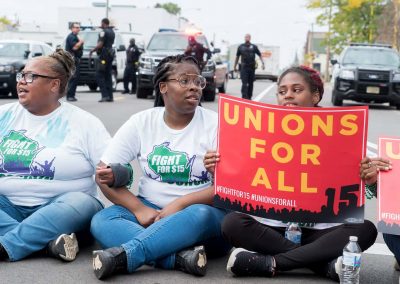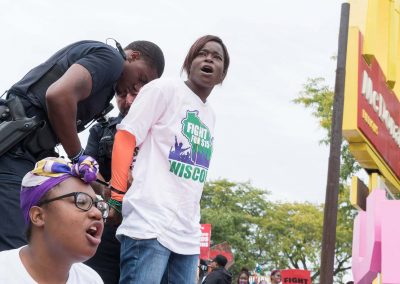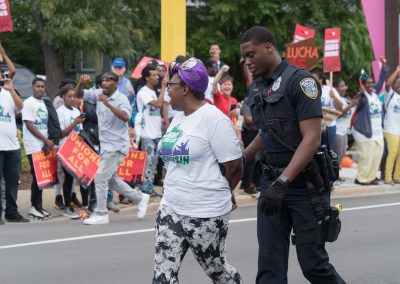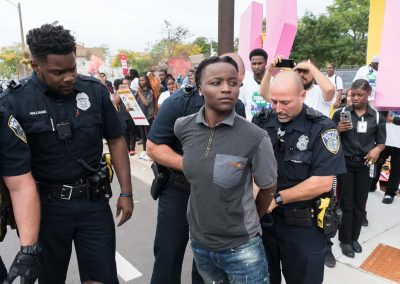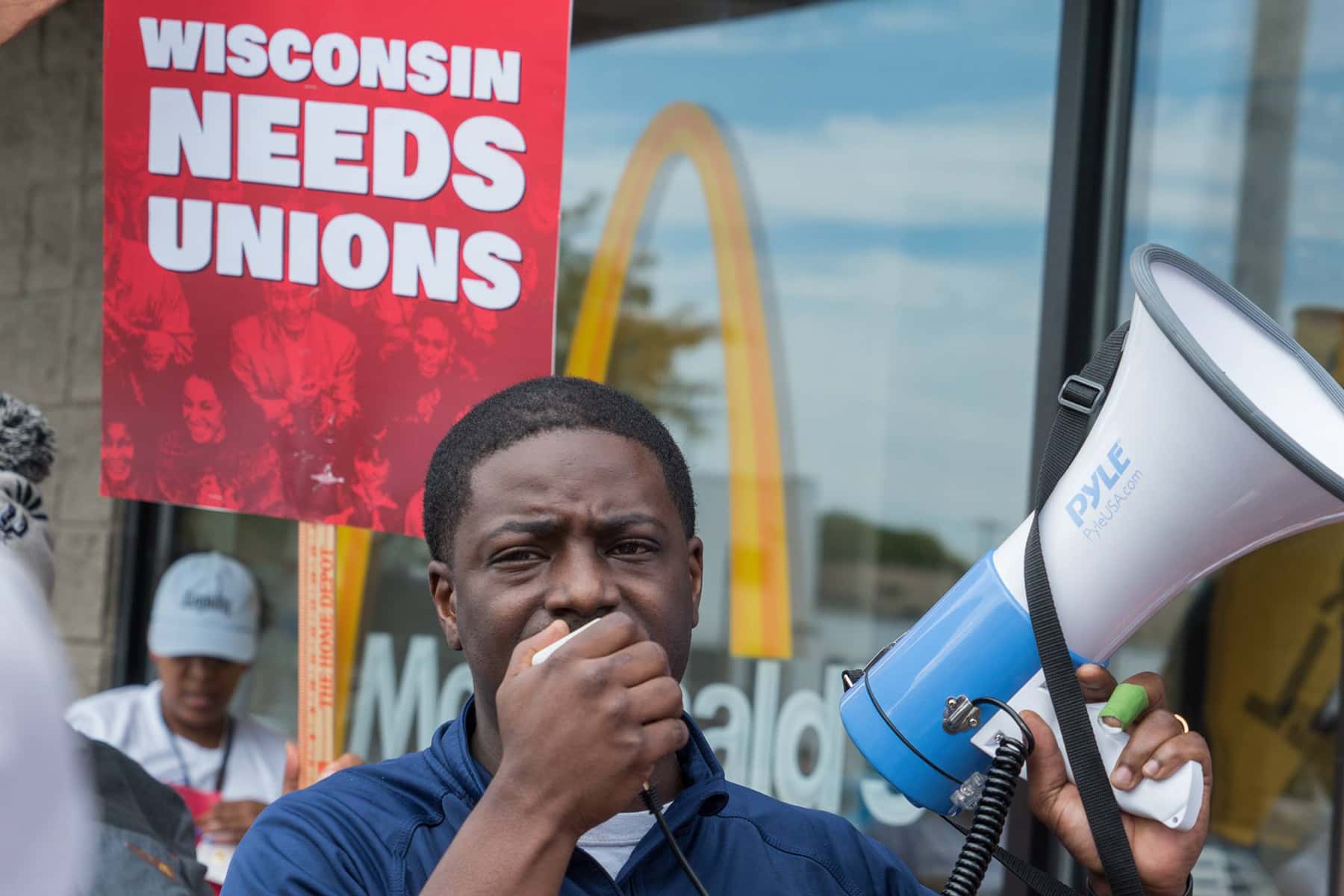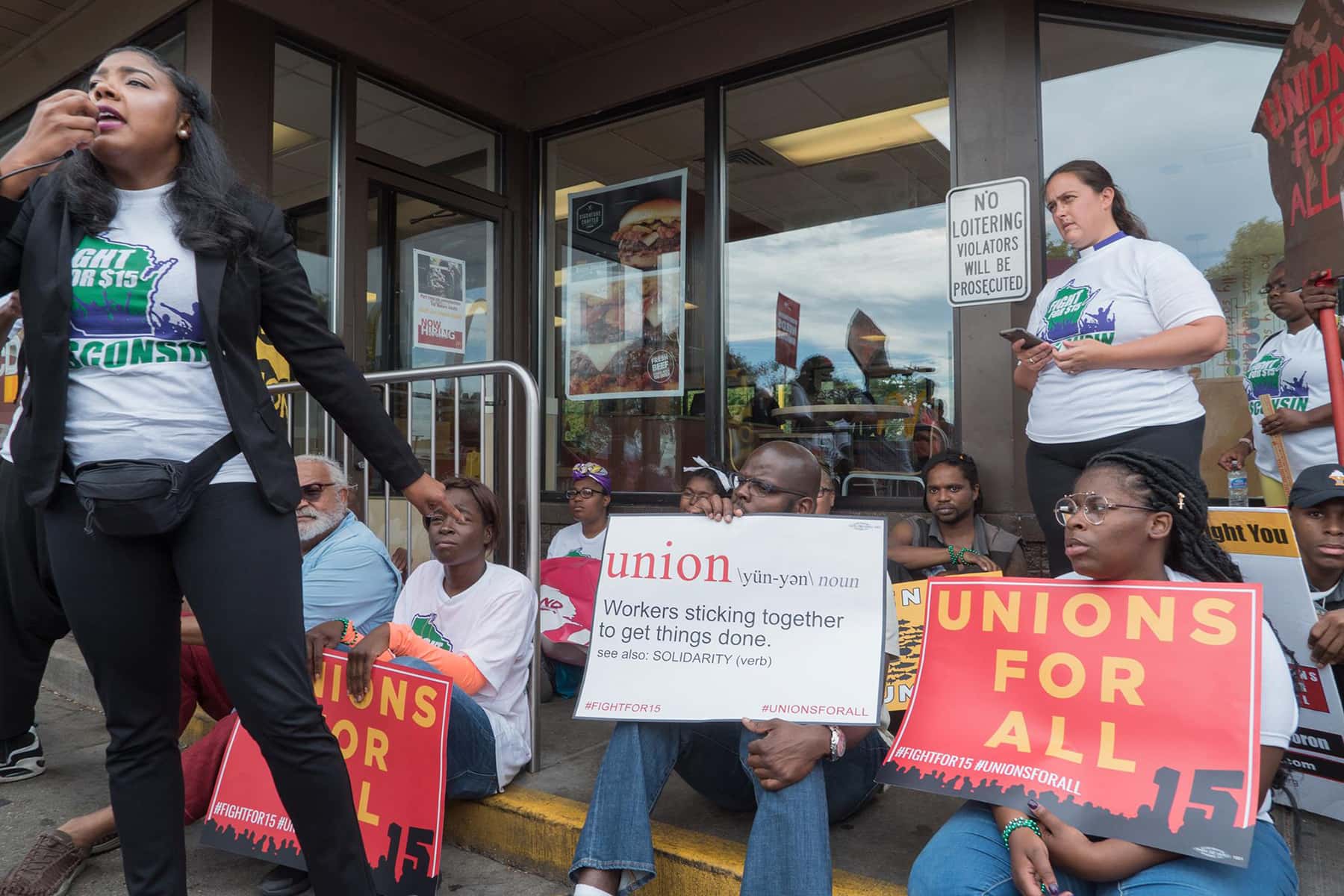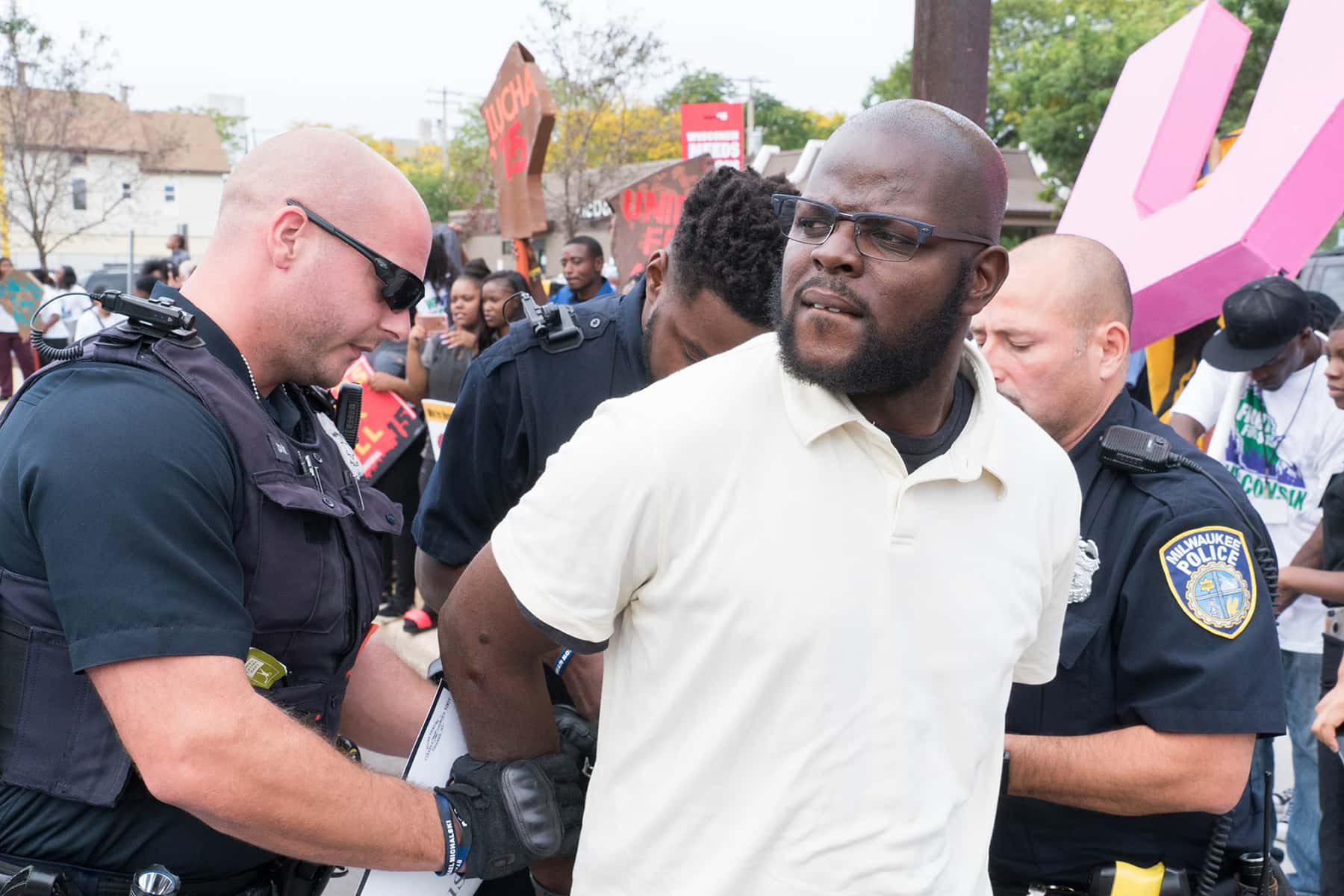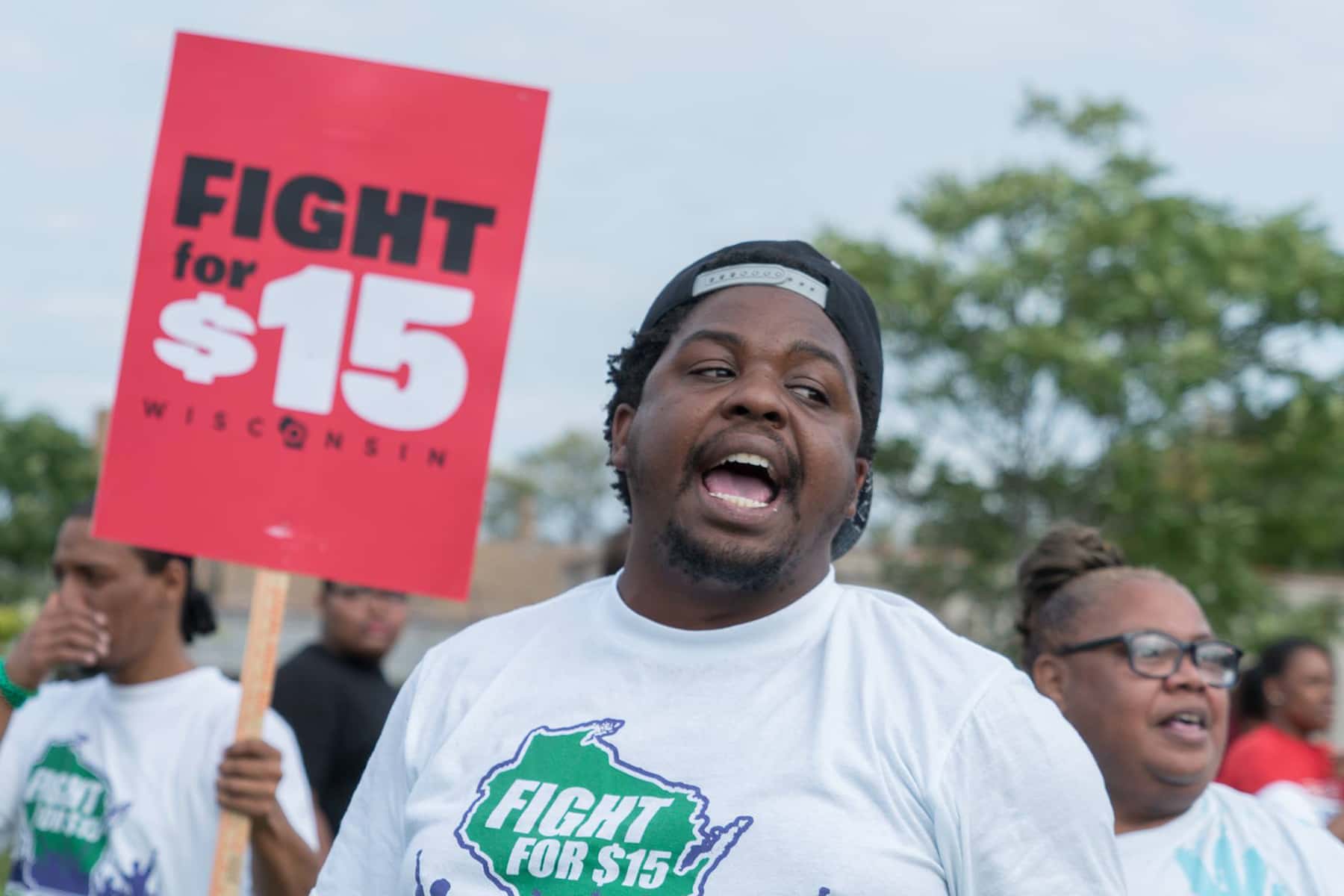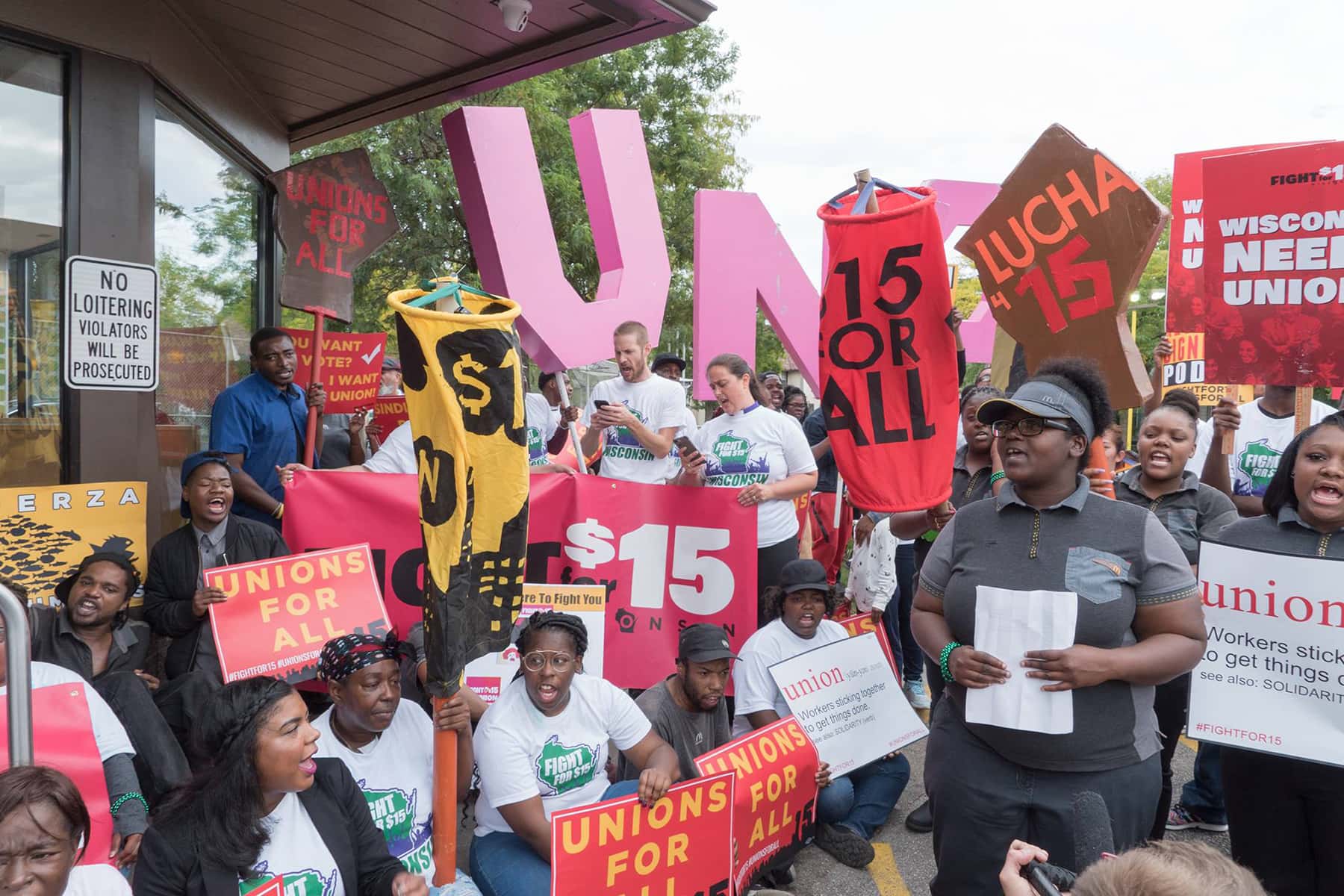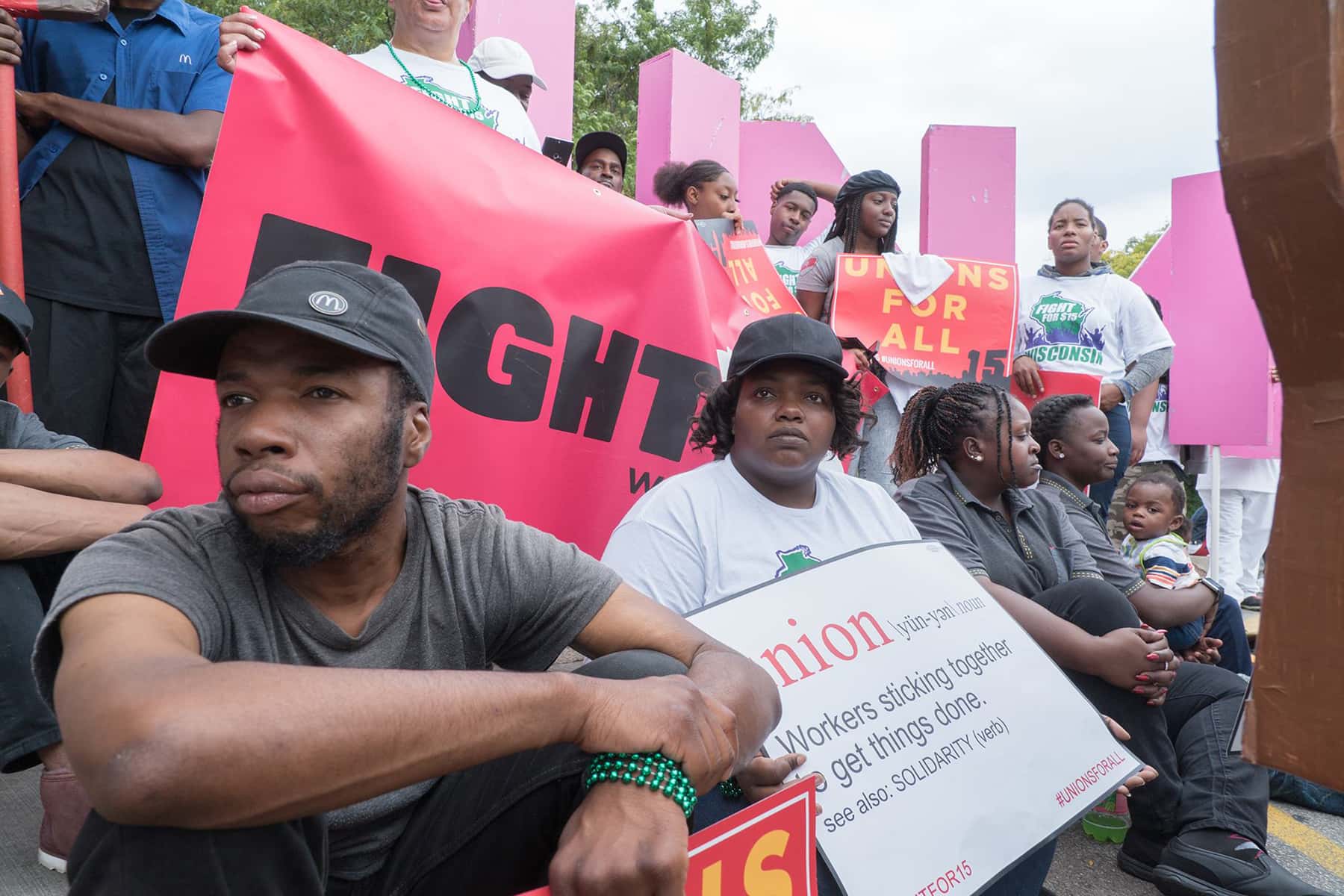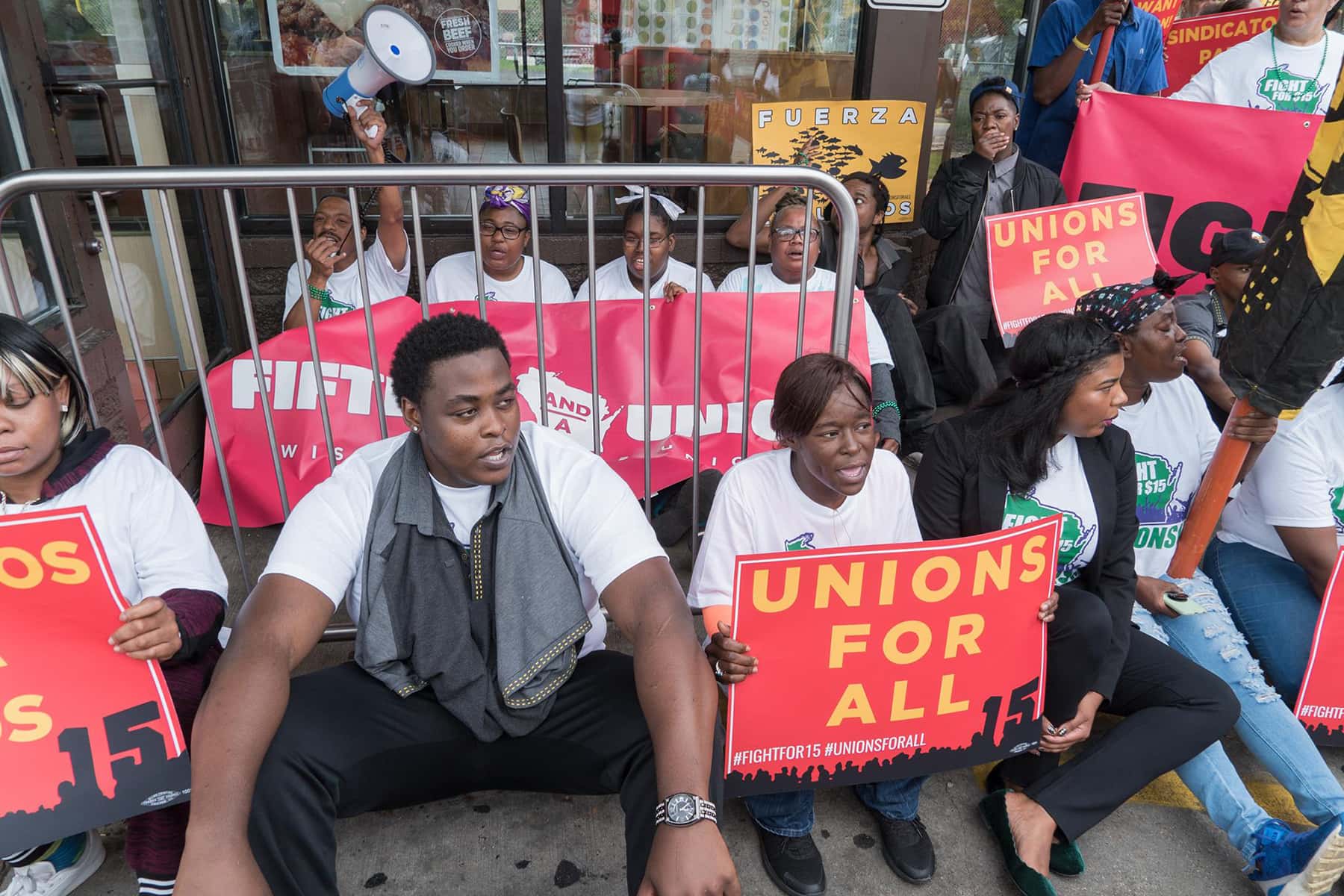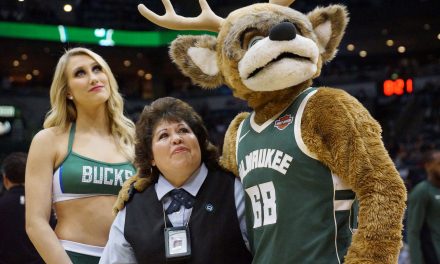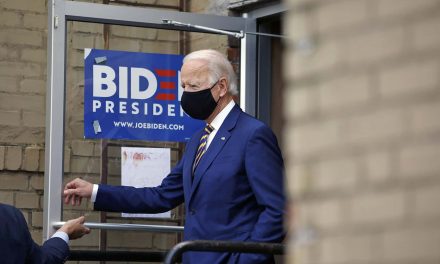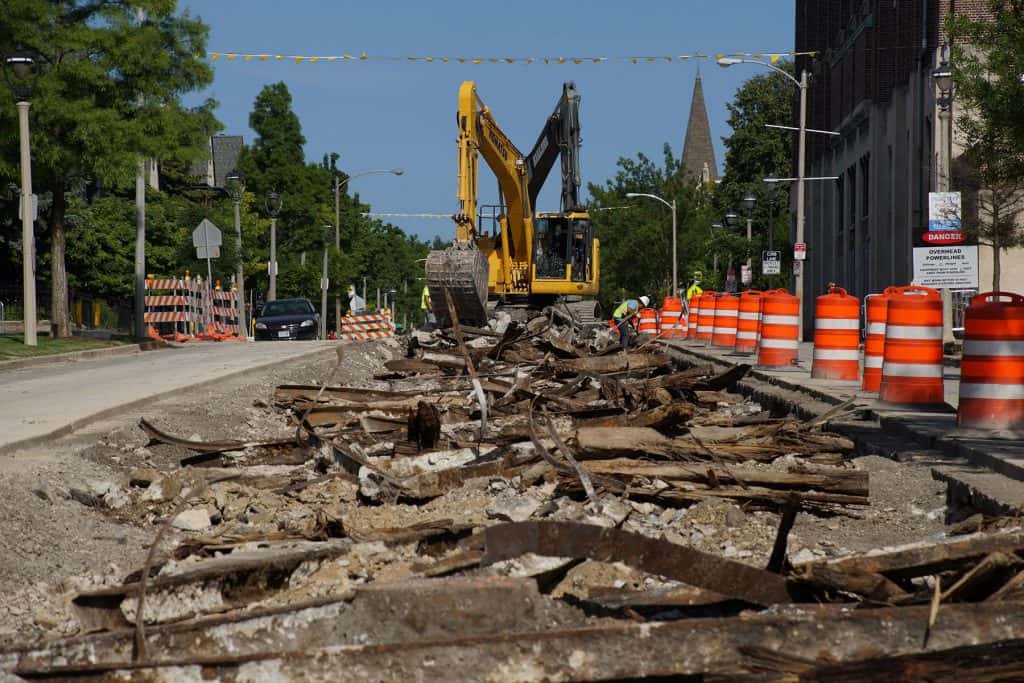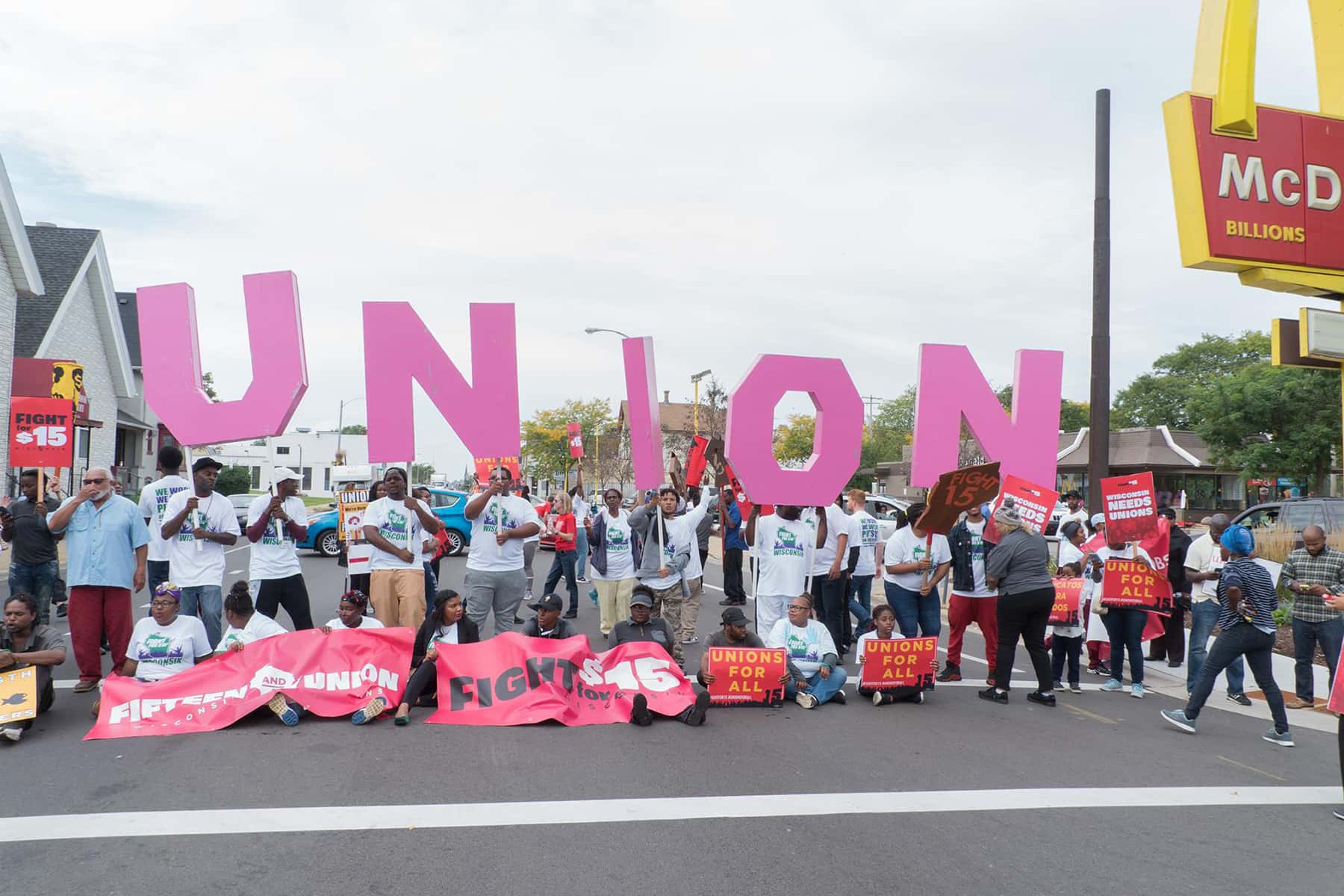
More than 25 cooks and cashiers were arrested along with local elected and community leaders on October 3 during a strike by more than 200 Milwaukee fast-food workers demanding the right to a union at McDonald’s, Burger King, Wendy’s and other fast-food chains.
With huge letters that spelled U-N-I-O-N, and chanting, “When workers rights are under attack, we stand up and fight back,” fast-food workers, elected leaders and community members shut down a local McDonald’s store during the lunchtime rush, blocking doors and taking over the drive thru area.
Shortly after, they marched to the streets, and stopped traffic as they took over Interstate 43, a major intersection near the store. Milwaukee native and Poor People’s Campaign: A National Call for Moral Revival Co-Chair the Rev. Dr. Liz Theoharis was among those arrested.
“When I go to the ballot this year, I’ll be supporting leaders who side with workers, not corporations,” said Jennifer Berry, a McDonald’s worker from Milwaukee. “We need the right to a union so we can lift our families and our communities. And we need elected leaders who will help us instead of block us from sticking together.”
The walkout followed 24 hours after hundreds of cooks and cashiers in Detroit and Flint, Michigan, walked off the job, culminating in nearly 20 arrests, including U.S. House candidate Rashida Tlaib.
More than a dozen elected leaders including state Assembly members, Milwaukee County supervisors and Milwaukee Common Council members joined fast-food workers on the strike line on October 3, vowing to grow unions and fight for workers organizing on the job.
“Workers in Wisconsin need unions – period,” said Marcelia Nicholson, Milwaukee County Board Supervisor and Organizer with MASH. “We’ve had eight years of all-out attacks on workers and their unions, making corporations richer and leaving working people in the dust. I will do everything in my power to fight for workers organizing in a union so we can lift pay and bring good jobs to communities across the state.”
The wave of strikes will hit Chicago Thursday as more than 1,000 fast-food and other service workers converge on McDonald’s corporate headquarters demanding union rights at the fast-food giant. And cooks and cashiers will strike in battleground states all across the country, including Florida, Georgia, Connecticut and California, demanding union rights in the $200 billion fast-food industry.
As fast-food cooks and cashiers strike nationwide this week, workers from across the service economy will join the uprising, including in key 2018 battlegrounds. Higher education workers at Miami Dade College – Florida’s largest college – and child care workers across California will rally on Thursday, while hospital workers at the University of Pittsburgh Medical Center will walk off the job to protest efforts by powerful employers to undercut unions.
Beginning October 4, workers in the Fight for $15 alongside union members across the country will head from the strike lines into their communities to lead 2018 election canvasses in swing states including Michigan, Wisconsin, Illinois, Georgia, California, Florida, Connecticut, New York, Pennsylvania, Colorado and Ohio where there are key races ahead of the November election.
The strikes and canvasses follow a blitz of town halls and roundtable meetings workers in the Fight for $15 have held in 17 cities this year with members of Congress and state and local elected leaders focused on the need for lawmakers to make it easier for workers to organize in unions.
As the election nears, support for unions is hitting record levels across the country. A survey by the Massachusetts Institute of Technology released in June found that Americans’ interest in joining unions is at a four-decade high, with nearly half of all nonunion workers in the U.S. saying they would join a union if they could.
A recent study by the Economic Policy Institute shows the decline in union membership over the past few decades has helped keep wages stagnant. Another study from the University of Illinois at Urbana-Champaign found that higher rates of unionization led to higher wages not just for union members, but for all workers.
Earlier this year, public school teachers launched a wave of strikes hitting red states spanning West Virginia to Oklahoma to Arizona and beyond to protest years of pay cuts and attacks by politicians against their union. And in August, working people in Missouri voted by an overwhelming 2-1 margin to repeal the state’s right-to-work law.
A growing number of candidates are putting unions at the center of their campaigns this year – and in state after state, that support has resonated with working families, including Conor Lamb in Pennsylvania, David Garcia in Arizona, and Richard Ojeda in West Virginia.
Joe Brusky
Jennifer Owens

